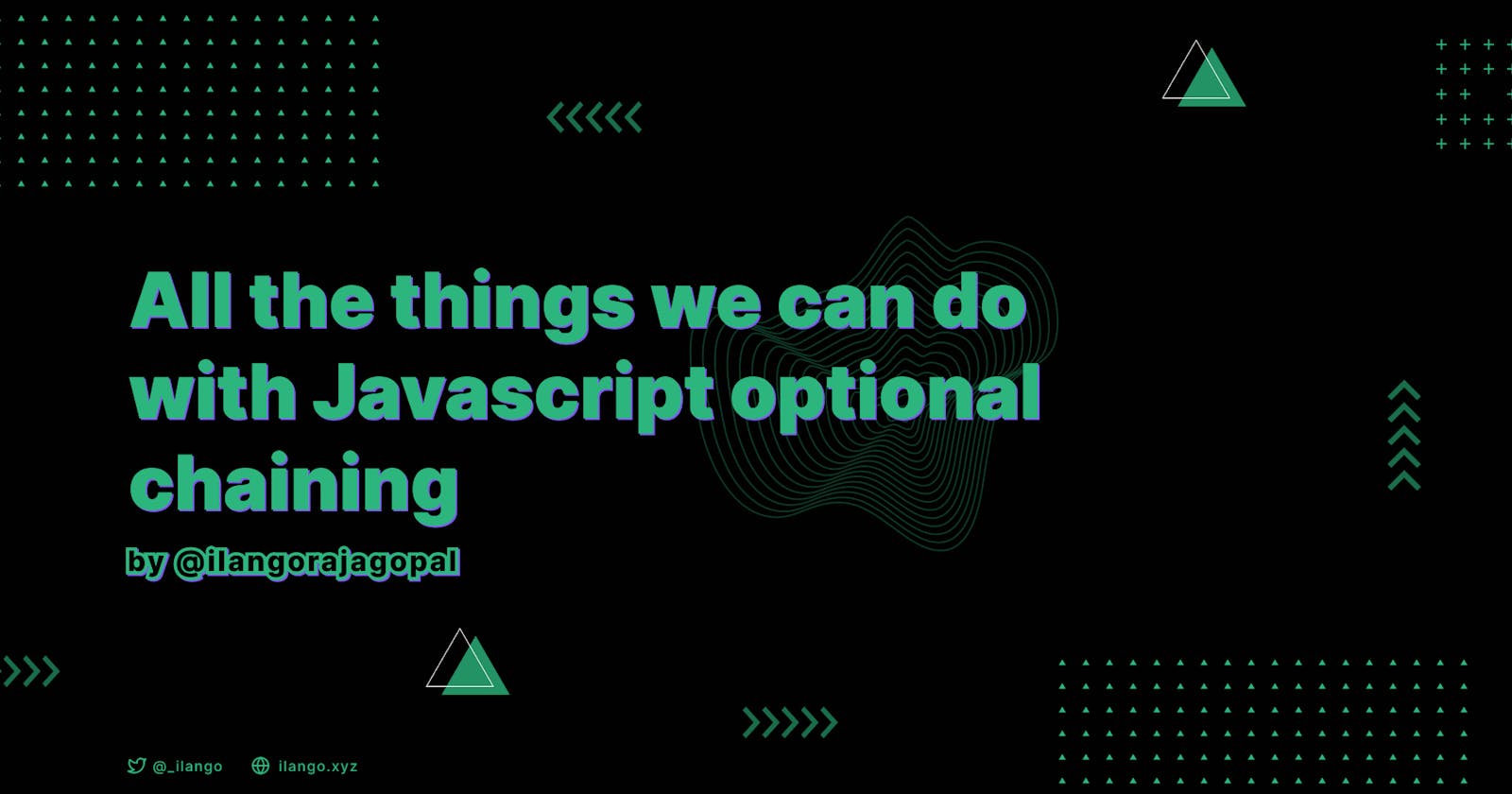A common problem when working with objects in Javascript is making sure nested properties are valid and available, not undefined or null. This usually occurs when reading a JSON response from a REST endpoint.
For example:
{
_id: Object.ID(''),
name: 'Quellcrist'
accounts: {
google: {
email: "quell@example.com",
profile: {
avatar: "https://example.com/avatar/img_1.png",
url: "https://example.com/quell"
}
}
}
}
All the fields are defined properly here, but if they're not, we have to handle those errors properly to prevent crashes. Historically we've done this:
const avatar = response && response.accounts && response.accounts.google && response.accounts.google.profile && response.accounts.profile.avatar
// Do something with the avatar
...
The deeper the properties are nested, the harder it is to write expressions like this. Not to mention, it is a pain to read and easy to get wrong.
Enter Optional Chaining
Optional chaining is a new feature in Javascript that solves this issue. It is easily one of my most loved new features. It is supported by the latest versions of all modern browsers. Older ones may need a polyfill.
Here's how to use optional chaining:
// From our previous example snippet
const avatar = response?.accounts?.google?.profile?.avatar;
See how simple and convenient that was? All we have to do when chaining properties is to use ?., instead of .. It's so much easier to read this than a string of AND conditions.
Not just for addressing object properties though
Optional chaining can be used in a few other circumstances as well:
Accessing array items
Let's say we want to make sure the array exists before we read from an index:
const arrayItem = arr?.[10];
Calling functions or nested methods
When we're unsure if the function or method exists before calling it:
const user = new User();
user.setUsername?.('quell');
Addressing dynamic property names
When we're using an expression to derive names of properties in objects:
const word = 'onomatopoeia';
const meaning = dictionary?.[word];
Usage with the null coalescing operator (??)
We can combine optional chaining with the null coalescing operator:
// If user.gender is available, assign the value to gender. If not, set it to 'Not Selected'
const gender = user?.gender ?? 'Not Selected';
What we can't do with it
We can't use optional chaining for assignment:
// This is not valid
const user?.dateOfBirth = '05 Nov 2001';
Optional chaining is easily one of the most needed features in Javascript. Having used the old way before optional chaining, I can honestly say that it's saving me so much time and headache.
Are you using optional chaining in your code? Any interesting uses apart from the ones mentioned above? Let me know in the comments.
Cheers.
